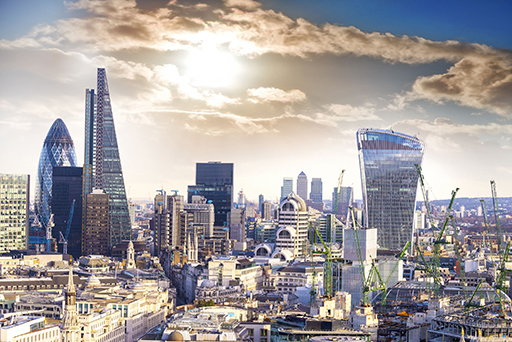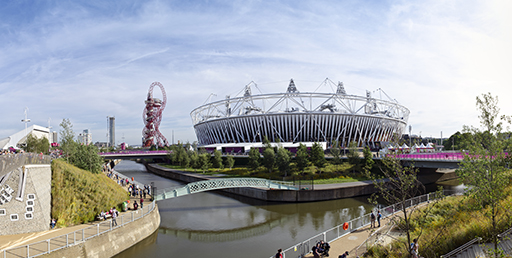2 Connection and disconnection
A focus on London’s role as a world city has tended to highlight the importance of its connections in wider global networks of finance or advanced producer services. In that context, London is understood to ‘compete’ with other global cities. It is sometimes even suggested that a new networked global politics is emerging that is based around those connections and that it will supersede forms of international relations organised around national state structures. From this perspective, it is these connections which have come to define it, to the extent that its relationship with the rest of the British economy and society might be seen to be vestigial, and certainly secondary. London is home to the headquarters of the most profitable companies and the highest paid employees.

Yet the sets of relations through which the mega region is defined are stubbornly connected through a range of spatial practices, which find a clear expression in the uneven development across the UK. London’s role as a world city (or with a particular position within world city networks) does not mean that its economy (and society) are effectively divorced from the rest of the UK. It is also defined through its connections to elsewhere within the UK. London’s tentacles stretch out to incorporate economic and social actors (particularly in the financial sector) in many other cities, as well as in many of the quasi rural enclaves of privilege to be found dotted around those cities.
Activity 2 Thinking about London
Pause for a moment to think of your own attitudes to London.
- Is it a place in which you want to live (whether you live there now or would like to move there)? If so, why? If not, why not?
- Do you think London has too high a profile in the UK’s political and economic system?
- Is London a driver of economic growth and cultural creativity across the UK, or does it undermine the potential of growth and creativity elsewhere?
- How would you describe those who live in London? How would you describe London as a place you know from the inside or know of from the outside?
Feedback
Your responses to the questions about London are your own, but how you view London provides an important starting point for what comes next. You might want to reflect back on your answers here at the end of this week’s work. The aim in what follows is to provide some evidence to help you think through the sometimes uneasy position of London and its wider city region within the UK as a political, economic and social entity. Your answers to the questions above will already provide some evidence of what you think about that.
In a slightly distorted echo of Anthony Barnett’s (2017) description of the politics of Brexit discussed in Week 1, Philip McCann (2016) argues that the UK now has to be understood as being made up of three economies: London and what he calls its hinterland (the London city region as it stretches to South West England); the north of England, the English Midlands; Northern Ireland and Wales; and Scotland. Almost half of the UK’s population, he says, now live in regions where productivity is similar to or below that of many regions in the post-communist economies of Central and Eastern Europe (including what was East Germany). Scotland is now more prosperous than many English regions and other devolved nations. Meanwhile, he argues that the core of the UK economy has ‘gone south’ towards the region around London and decoupled from the rest of the UK.
Recognising the extent to which London has taken on this role is not the end of the story, however. On the contrary, there is a sharp tension between those who see London as a driver of the economy and those who see it as an active agent in generating wider geographical inequality. So, for example, (in the first of a series prepared for the City of London Corporation) Ian Gordon and others (2003) strongly argue that London is a net contributor to the rest of the country through its taxes and the public expenditure for which they pay. Not surprisingly, this is a position that has been endorsed by a series of London mayors, from Ken Livingston and Boris Johnson to Sadiq Khan.
Peter Hall (in Hall et al., 2009) goes further to argue that one solution to regional inequality (at least in England) might be for the London city region simply to expand its footprint to incorporate other cities, starting with Birmingham.
From another perspective, however, the matter has been understood quite differently. London’s position within the UK’s space economy reflects a deeply unequal set of social and economic relations. There is a bigger gap between the wealth and economic prosperity of London and the more disadvantaged regions and territories of the UK than there is in most advanced economies. As Philip McCann (2016, p. 1) puts it: ‘the economic geography of the UK nowadays increasingly reflects the patterns typically observed in developing or former-transition economies rather than in other advanced economies’. Ash Amin, Doreen Massey and Nigel Thrift (2003) argue that the centralisation of power in London means that a significant element of UK ‘policy making effectively functions as an unacknowledged regional policy for the South Eastern part of England’ (Amin et al., 2003, p. 17). As a result, they argue that economic policy is overly influenced by the state of the regional economy in London and the South East. They complain that steps are taken to restrain the economy when the region is ‘overheating’, even when the rest of the UK still has significant capacity for growth.
Despite a rhetorical shift in the language of national policy in England towards other possible growth regions (such as the ‘Northern Powerhouse’ or the ‘Midlands Engine’) and towards forms of devolved government in the UK’s nations, the logics of development continue to reinforce the centrality of the Greater South East in public policy practice. The recent history of mega projects certainly points in this direction. So, for example, the success of London’s bid for the 2012 Olympic Games was a reflection of London’s position as a world city (and previous attempts by UK cities were said to have failed because of their more lowly position in urban hierarchies).The Olympics itself is a globalised and globalising phenomenon. The bidding process was a UK initiative, with London at its core, and the bid was underpinned by the promise to transform (regenerate or remake) a significant area of East London. The infrastructural investment that followed has been reinforced since then (in the form of Crossrail as well as parkland and support for building new residential areas and new forms of commercial development).

Major infrastructural development associated with Crossrail (a new underground line cutting across London from east to west) and a new high speed railway line (HS2) providing faster connections between London and North West England also provides the basis for major state sponsored and private sector led development around two new rail terminals in a previously run-down area in the west of London (Old Oak and Park Royal). National priorities and national investments seem to have a continuing role in reinforcing London’s position within the national space economy. As Ian Gordon puts it, one consequence of London’s ability to draw upon the generosity of the national state is that it has received ‘bail-outs, implicit subsidy and quantitative easing … [that] have been translated specifically into employment/spending power within London – and overseas – rather than elsewhere within the UK’ (Gordon, 2016, p. 336).
Doreen Massey (2007) goes further to argue that the political emphasis on London’s global role is a political strategy (as much as an economic reality) because of the way in which it reinforces particular ways of thinking (which she identifies as neo-liberal). The ‘geographical concentration’ of the very wealthy in London and the South East, ‘into a self-referential echo chamber reinforces their distance from the rest of us’ (Massey, 2007, p. 66), and serves to reinforce a policy agenda which includes a commitment to deregulation, an emphasis on the ‘untouchability’ of the financial sector, and a drive to privatisation of various sorts (including ‘competitive individualism and personal self-reliance’) (Massey, 2007, pp. 38-40). The ‘global’ is mobilised precisely to reinforce the city’s national dominance to the extent that the ‘Reinvigoration of London…represents the rise of a new elite, and the culture in which it is embedded’ (Massey, 2007, p. 49).
